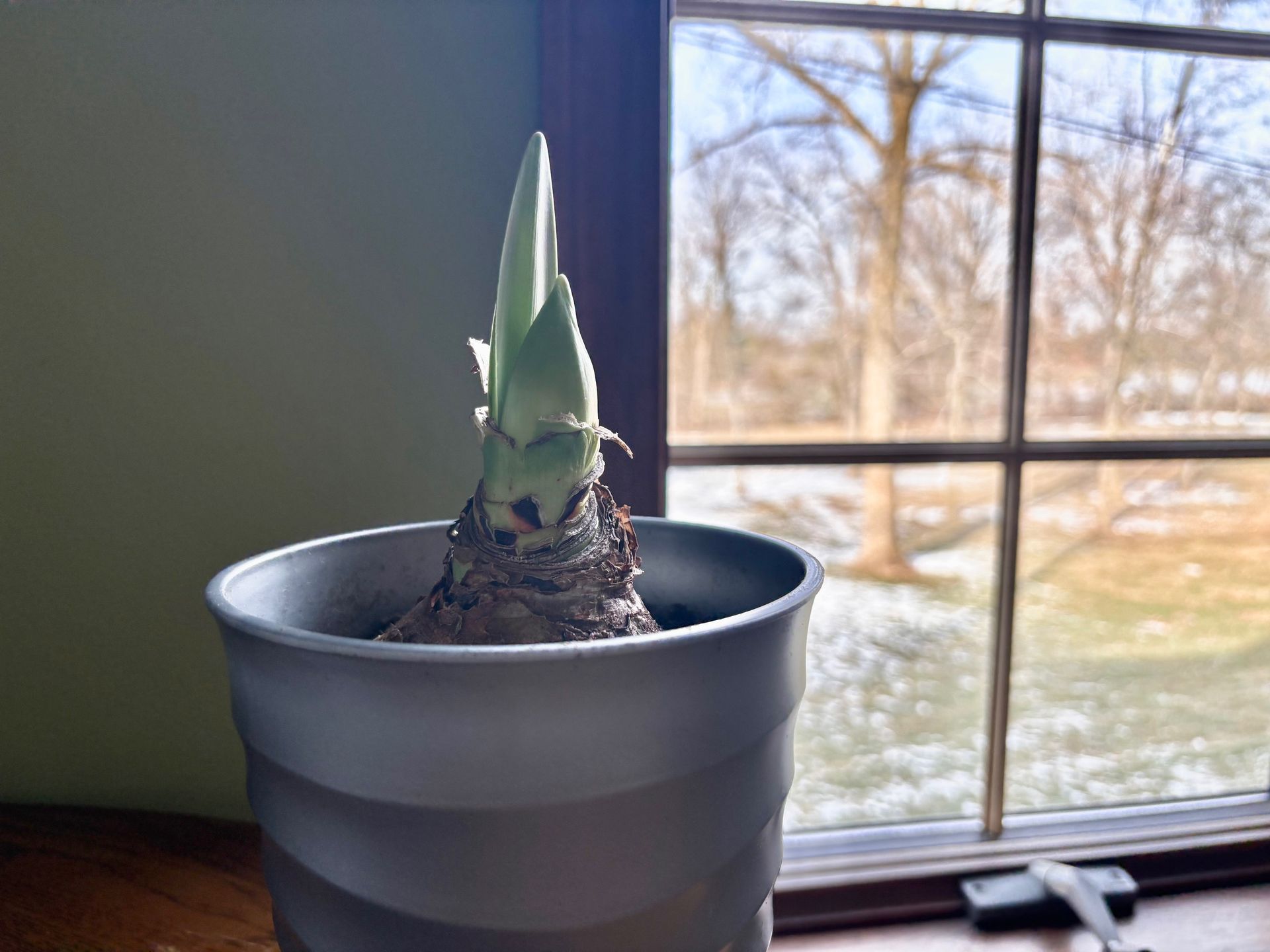Nurturing Wholeness: Healing from the Inside Out.
A blog to discover faith-based, stress and trauma-informed wisdom and practical tools to restore balance and reclaim vibrant health in your life.
Blog

For the person dealing with anxiety, all the well-meaning (and sometimes shaming) suggestions can seem trite and overly simplistic—and for good reason. Anxiety is multifaceted and colored with nuance. Anxiety has always been my enemy, but recently I have begun seeing portions of it as my friend. A friend that I avoid and even shun, but one that persistently whispers and even screams at me. It wants my attention so it can warn me of perceived danger. It speaks through agitation, insomnia, stomachaches, heart palpitations, racing thoughts, and restlessness. I try to drown out the voice with distraction or noise, but it is still there. Here’s the thing—it quiets down when I start listening. When I pay attention to why my thoughts are racing and why I can’t sleep, I often discover a deeper need beneath the surface. Sometimes it’s my present circumstances—an unexpected phone call or a stressful situation I’m faced with. Other times, I’m overstimulated by my environment and technology, or I haven’t eaten enough protein, and I am dehydrated. It may also be a nagging fear or a chronically challenging relationship. It is my job to notice how my body is speaking and then determine what it is trying to tell me. Unfortunately, circumstances alone aren’t the only cause of anxiety. Genetic factors, low blood sugar, nutrient deficiencies, elevated cortisol, poor gut health, trauma, chronic stress, insufficient sleep, and too much caffeine and sugar can also contribute. So, a one-size-fits-all approach rarely works. There are many factors to consider—and this is exactly how I approach anxiety inside my Wholeness Restored Program . But insight alone isn’t always enough in the moment—especially when anxiety shows up unexpectedly. Next week, I want to share one simple, God-designed tool I teach my clients early on—something you can use right away while you’re sorting through root causes and making deeper changes.

Her voice was calm and gentle, but her words still packed a punch. “Rachel, your perfectionism is the result of you trying to control your external circumstances to manage your internal agitation.” Ouch. She was right—but I didn’t like the truth. Was I really doing that? I was. Once I admitted it, I could see it so clearly. The perfectionism I had always struggled with wasn’t really about being perfect; it was about trying to feel okay inside. The more unsettled I felt internally, the more I tried to control my environment. And when I couldn’t control it, I numbed myself to it. Some of you can relate to what I’m saying. Others may feel baffled by my confession. But if you’re baffled, it’s likely not because the pattern is unfamiliar—only that my example doesn’t mirror yours. You, too, are probably making choices based on the intensity of your environment in an effort to regulate what’s happening inside of you. Let me explain further. Our external environment—the life we live—is full of constant alerts, noise, and unpredictable demands. We can’t escape it. Technology, beginning with our phones and watches. Overloaded calendars that keep us running nonstop. The needs and demands of our children—or a boss who always expects more. Can you feel the tension in your body just thinking about it? This constant stimulation leads to internal agitation and the familiar question: Why can’t I calm down? Here’s the thing. We can’t escape every part of life that feels overwhelming. But we can choose to limit the overstimulation that contributes to the overwhelm. We can choose to create rhythms that establish a foundation for healing. Often, a sense of calm comes from consistent, small signals of safety—not big, dramatic overhauls. We can add white space to our calendars by saying no more often and intentionally setting aside time to be at home—or wherever allows you to take a deep breath and drop your shoulders in relief. We can silence our phones and take off our watches for an hour at a time to be fully present with those we love or to work without distraction. The world will wait. We can intentionally step away from screens and read a paper book, play a board game, or take a walk outside in nature. We can turn off the podcasts, audiobooks, or background television and become comfortable with silence again. We can reach for protein and produce instead of caffeine and sugar. In the quiet and the slowness, we begin to notice how our insides are speaking to us. Often, the internal angst that feels so uncomfortable is simply your body trying to get your attention. It may feel awkward—or even alarming at first—to fully feel what’s going on inside, but as you listen and respond, the emotional chatter begins to settle. It’s very difficult to calm anxious thoughts when our lifestyle continually feeds racing thoughts and unsettled feelings. That’s why I talk so much about lifestyle habits inside Wholeness Restored. We don’t change everything at once. Slowly, incrementally, we make changes that breathe life back into us. The chaos we sense all around us requires a counter-cultural approach to stilling the chaos within us. I had to face the perfectionistic habits I was using to manage the noise inside of me. Trying to control my circumstances perfectly would never alleviate the apprehension I felt, because the moment something became imperfect, my anxiety returned. It was an impossible fix—and I was trapped in it. Instead, I learned to slow down enough to notice the sensations in my body. I chose to eat well and prioritize extra sleep. I turned off my phone and computer and stopped numbing the discomfort I felt. I allowed myself to be fully present with my emotions. And as I did, they began to diminish. And the biggest difference? I no longer felt as overwhelmed—by my external environment or my internal world.

It started as just a tickle in my throat when I woke up early on a January Sunday morning. I recognized the familiar signs of a cold, so I made wise choices. I stayed home from church. I drank steaming mugs of tea and rested. On Monday, I worked from home and met with clients virtually. My symptoms weren’t severe, but I wanted to be smart. By Tuesday, the tickle had settled into my voice. And then Wednesday morning came—with a choice. I could reschedule my appointments… or I could push through, suppress my cough, and force my voice to work. I wish I could tell you I chose well. Instead, I pushed through. I didn’t want to disappoint my clients, and after all, I wasn’t that sick. By Wednesday evening, I had no voice—and I felt much worse overall. It took several more days to fully realize how inflamed and irritated my voice box had become because I used it when it needed rest. It’s now February, and my voice still isn’t completely back to normal. Maybe you can’t relate to losing your voice quite like that—but I’m willing to bet you can relate to pushing yourself when you shouldn’t. An overloaded calendar that makes your head spin. Children who depend on you. Aging parents who need you. Expectations from friends, church, or school responsibilities. You feel guilty saying no. Selfish if you slow down. Frustrated because it seems like everyone expects more than you can give. Or maybe you know you should stop pushing—but the alternative feels scary. Add to that the emotional weight of everything happening around you. The constant stream of discouraging news. Social media is urging you to care deeply—and act immediately. Friends and family walking through hard seasons. It all becomes too much. You feel tired, overwhelmed, irritable, and anxious. What’s really happening is this: you are overstimulated by constant demands and expectations, and it’s taking a toll on your body and emotions. Reducing overstimulation and regulating your nervous system doesn’t happen through white-knuckling. It begins with admitting that something has to change. As Aundi Kolber writes in Try Softer : “We ‘white-knuckle’ when we consciously or unconsciously ignore internal warning signs from our minds and bodies to cope with situations that are overwhelming or disturbing. Often we learn to overfunction not out of choice but as a way to survive. This approach then carries over into everyday life because we don’t know a different way.” An overstimulated nervous system doesn’t need more discipline—it needs signals of safety. That may look like prioritizing what God has truly called you to and letting go of the rest—even when someone is disappointed. It may mean choosing quiet over constant noise. Reducing scrolling and taking a walk instead. Going to bed instead of finishing one more task. Or eating more protein instead of sugar to support steadier energy and clearer thinking. Pushing through often worsens anxiety, sleep issues, and fatigue. I pushed through—and lost my voice entirely. Sometimes our lingering health struggles don’t improve until we slow down enough to allow our bodies to regulate and return to a place of calm, peace, and presence. Throughout Scripture, we see God establish rhythms of work and rest—creating space to breathe, recover, and trust Him with our limits. Hustle culture rejects limitation. God invites us to honor it. Regulation through slowing down isn’t indulgence. It’s an acknowledgment of our humanity. And it opens the door to healing anxiety, fatigue, and irritability that quietly choke our peace. This week, I invite you to choose just one thing that gives your nervous system permission to begin regulating. Maybe it’s sitting down for a meal without multitasking. Going to bed an hour earlier. Waking up 15 minutes earlier for quiet before the house stirs. Putting down your phone and going for a walk—even in the cold. Playing a game with your kids. Choose one small way to go against the busyness that constantly pulls you out of regulation. If you’d like to learn more about Wholeness Restored —a countercultural, supportive way to heal your body—I invite you to schedule a free introductory call with me. Wholeness Restored isn’t another program to push through or check off your list. It’s a guided process of learning how to regulate your body so you can thrive and includes important testing to get to the root of imbalances, sustainable lifestyle suggestions, nutrient recommendations, and community support so you can restore peace, vibrancy, and the ability to feel present with those you love.

I love my family. I love when we’re all together—spanning generations from almost 90 years old down to almost 2. The adults are discussing. The teens are debating. The children are collaborating. A small child is probably crying, and another (or two… or three) is running around squealing with delight. It. Is. Loud. Aside from the brief pause for a meal-time prayer, it never really quiets down. And honestly? I love it all. And still… I can go home feeling completely overstimulated by the commotion. Here’s what I’ve noticed, though: my environment—my world (and likely yours too)—is full of overstimulation. And because it’s so constant, I often don’t realize how much it’s affecting me until it feels exaggerated or overwhelming. Without even being aware of it, we live immersed in constant stimulation. The phone in our hand. The screens in front of us. The pressure to stay productive or keep our calendars full. The endless stream of information. The background noise. The bright lights. All of it quietly adds up. And often, that overstimulation doesn’t show up as something obvious. It shows up internally. Anxiety. Irritability. Exhaustion. An inability to settle. We feel uneasy without our phones nearby. Silence feels uncomfortable—even disconcerting. And we don’t always know why. God didn’t create us to live this way. He didn’t design our nervous systems to constantly react to stimulation without pause or rest. We are living in a world our nervous systems were never designed for. Chronic overstimulation keeps the body in a constant “on” state. This isn’t a character flaw or a lack of discipline—it’s a biological and emotional response. When the input feels relentless, the body shifts into fight-or-flight… or freezes because there’s no clear escape. God designed us for rhythms, limits, and rest. Days and nights. Seasons. Patterns of work and restoration. These rhythms were meant to support our bodies, not exhaust them. But modern culture—and technology in particular—has learned how to override them. This is why intentional slowing isn’t weakness. It’s wisdom. So, here’s a simple invitation—For just one day, notice what overstimulates you. Notice the sounds, the screens, the pace, the internal pressure. Simply notice how your body responds. That awareness alone is a powerful first step. We live in a culture that capitalizes on overstimulation, so it’s understandable if you feel overwhelmed—or even trapped—when you think about how to change this. But regulation doesn’t mean rejecting modern life. Regulation means using technology for your benefit without being controlled by it. It means being able to quiet your mind when you go to bed. It means finding enjoyment in slower moments—playing a board game, working on a puzzle, reading a paper book—without reaching for something more stimulating. It means being present with the people you love without the constant pull to multitask. If you’re ready to explore what being present could look like for you—and how to calm the internal buzzing that’s become a constant companion—I invite you to book a free 45-minute introductory call to learn more about Wholeness Restored . Wholeness Restored is not a DIY, one-size-fits-all program. It’s a personalized, supportive healing journey—designed to help you understand your body, regulate your nervous system, and move back toward peace and vibrancy with guidance and support. You don’t have to figure this out alone.

I barely remember the room, or even what she looked like. But I remember the feeling. Relief. Hope. I was sitting across from a practitioner, sharing a significant health challenge I had been carrying for a long time. When I finished, she looked at me and said, calmly and confidently, “I can help you with that. Give me six months, and you’ll be amazed at how much better you feel.” To this day, I truly believe that at least half of the healing I went on to experience came from that moment alone—because hope was restored. Not willpower. Not pushing harder. Hope. So many women I talk to are quietly living without it. They’re functioning. They’re serving. They’re holding everything together. But underneath, there’s a constant sense of strain—like they should be doing better by now. Like other people seem to handle life with more strength or resilience. Like needing help somehow means they’ve failed. And because of that, they keep carrying it alone. Here’s what I want you to hear clearly: Struggling doesn’t mean you’re weak. It means your system has been under a load for a long time. Chronic stress, unresolved trauma, environmental overwhelm, and the pace of modern life all tax the nervous system in ways that no amount of “trying harder” can fix. When your body has been operating in survival mode for years, healing doesn’t come from effort—it comes from support, safety, and a clear path forward. This is why structure matters. This is why guidance matters. Healing is rarely about one magic solution. It’s about having a step-by-step process that helps you understand what your body has been communicating all along—and walking that process in a way that feels supported rather than overwhelming. It’s also why community matters more than we often admit. There is something profoundly regulating about not being the only one. About having your experience normalized. About learning alongside other women who love their families deeply, take their faith seriously, and are still allowed to tend to their own restoration. This is the heart behind Wholeness Restored . It’s about helping you listen, respond wisely, and rebuild resilience—physically, emotionally, relationally, and spiritually—one step at a time. If you’ve been sensing that you can’t keep doing this on your own… that awareness itself is not failure. It’s wisdom. If you’d like a place to better understand what’s happening in your body and explore what next steps could look like, I’d love to invite you to schedule a free 45-minute introductory call . There’s no pressure—just space to talk, ask questions, and see whether Wholeness Restored might be the kind of support you’ve been missing. You don’t have to prove your strength by carrying everything alone.

I first met Maddie* when she scheduled an introductory call with me. She was smiley and warm—one of those women who makes you feel at ease right away. As we talked, she shared pieces of her life, and slowly a much fuller picture came into view. She had just moved out of a home with mold and into a new “smart” home. Her youngest son had been dealing with medical issues that required a lot of time and emotional energy. She was homeschooling four children. She was leading two different committees at church. And somewhere in the middle of all of that, she felt guilty—convinced she wasn’t doing enough—and resentful toward others she thought should be doing more. On the surface, Maddie looked like she was managing well in spite of everything she was doing. But underneath, her system was carrying a hidden stress load of toxins that was contributing to her overwhelm. This is something I see often. When we think about stress, we usually think about what’s obvious: busy schedules, emotional strain, and difficult seasons. But the body doesn’t just respond to what we consciously label as stressful. It responds to everything it has to process. That includes what’s in our environment. Our nervous system is constantly taking in information—from our relationships, our responsibilities, our thoughts, and also from the world around us. Mold exposure. Processed foods. Household cleaning and body care products. EMFs. Even when these things feel normal or unavoidable, they still ask something of the body. Not because they’re always “bad” or because you’ve done something wrong—but because the body has to work to adapt. When that environmental load is added on top of chronic stress, past trauma, and a lack of recovery, it can quietly tip the system into overload. This is why so many women tell me, “I don’t understand why I feel this way.” “I’m trying to take care of myself.” “I’ve made changes, but nothing really sticks.” Often, it’s not that nothing is working. It’s that the body is already maxed out. In Wholeness Restored, we begin with a simple but powerful pillar: Recognize . Recognize what your body has been navigating—both seen and unseen. Recognize that symptoms aren’t random. Recognize that healing is harder when the environment is constantly asking more of a system that’s already depleted. This isn’t about fear. It’s not about eliminating every possible exposure or striving for perfection. It’s about awareness. Here’s one question you can ask yourself this week: Instead of saying, “What else should I add to fix this?” Ask, “What might be adding stress to my system that I haven’t considered?” I also have a Resource Guide that includes some of the ways I personally have chosen to reduce environmental stressors—without turning my life upside down. You can download it here . And if you’d like help understanding how your unique stress load—life demands, environment, and internal patterns—may be impacting how you feel, I’d love to invite you to a **free 45-minute ** introductory call . It’s a space to understand what’s happening in your body and explore next steps together. If you’re considering deeper support, I want you to know that during January , enrollment in Wholeness Restored includes a free Adrenal Cortisol Test (a $210 value). It’s a simple tool we use to better understand how stress may be showing up in your body so your healing journey can be more informed and specific. *Maddie isn’t one specific client—she represents a combination of stories and experiences I see again and again in the women who reach out to me.

You want to do it all—and you want to do it right. You want to serve God well. Serve your family well. Be present with your kids. Host people in your home. Cook healthy meals. Exercise consistently. Invest in the lives of people you love. Help where there’s a need. And still show up fully for your work and the people you serve. And the more full your life becomes…the more frantic it starts to feel. I’ve noticed this pattern in myself more than once. The more I have going on, the more productive I feel like I need to be. My pace speeds up. My mind races. Rest starts to feel irresponsible. It becomes an exhausting hamster wheel. Can you relate? What I’ve learned—and continue to learn—is that when I reach that place of frenetic energy, it’s a sign that my nervous system is dysregulated. I’m no longer operating from a place of health, even if everything on the outside looks “good.” Here’s what that often looks like in real life. When the nervous system stays under stress for too long, the body shifts into a state of constant readiness. It’s trying to keep you going, keep you safe, keep you functioning. But that state was never meant to be permanent. So instead of feeling calm and steady, you might notice: A constant edge or underlying anxiety Feeling tired but unable to truly rest Irritability that surprises you Overwhelm over things that used to feel manageable Many women assume these symptoms mean something is wrong with them—or that they should just try harder to fix it. But often, these are signals. Not failures. They’re the body’s way of saying, “I’ve been running in survival mode for a long time.” Most women I work with don’t come to me talking about nervous systems or dysregulation. They come saying, “I don’t feel like myself anymore.” Or, “I don’t understand why I feel this way when I’m doing all the right things.” And that confusion can lead to shame. Please hear this clearly: Feeling anxious, wired, irritable, or overwhelmed does not mean you’re weak. It does not mean your faith is lacking. And it does not mean your body is broken. It means your system has been carrying more than it was designed to carry without support and recovery. Here’s something you can do this week—whether or not we ever work together. Instead of asking, “What’s wrong with me?” Try asking, “What has my body been asking me for that I haven’t been able to give?” That simple shift—from self-criticism to curiosity—can change everything. Healing doesn’t start with fixing every symptom or making perfect choices. It starts with understanding what’s happening in your body and creating safety again, little by little. That understanding is what led me to create Wholeness Restored . It’s a step-by-step, supportive program designed to help women move out of survival mode and into a place of steadiness, energy, and peace—by addressing root causes and honoring the body rather than overriding it. If you’d like a space to better understand what your body might be communicating right now, I invite you to a **free 45-minute ** introductory call . It’s a place to ask questions, be heard, and explore next steps—no pressure. And for the month of January , women who enroll in Wholeness Restored also receive a free Adrenal Cortisol Test (a $210 value), which can offer insight into how chronic stress may be impacting energy, mood, sleep, and resilience. If you’re tired of pushing through and ready for a gentler, wiser way forward, you don’t have to do this alone. You can learn more by booking a free call .

The end of December is a paradox. We are saying goodbye to another year while simultaneously welcoming a new one. Some of us are sad to see 2025 end, while others are more than ready to wash our hands of it. Some of us eagerly anticipate 2026, and others dread the thought of another year altogether. In spite of how you feel about the year ahead, setting New Year’s resolutions is probably on your mind—either because “this is the year” or because you’re trying hard to ignore all the hype around goals. As I reflect on 2025 and the goals I set, I see a year marked by both successes and failures. Some goals I gave up on in the first week and felt guilty about, blaming my lack of discipline. Other goals I stuck with for the entire year—but they became something to check off a list rather than habits that truly benefited me. So rather than give you another pep rally about the goals you should set—to reduce anxiety and improve mood, eat healthier, exercise regularly, get more sleep, reduce stress, improve relationships, etc., etc., etc.—I want to talk about the annual problem of setting goals to begin with. WHY HEALTH GOALS SO OFTEN FAIL External factors Life is full, stressful, and demanding. Women are often trying to improve their health while caring for everyone else. Most women don’t have the support or accountability that actually sets them up for success. Internal factors Most goals fail because they don’t address: Why anxiety, exhaustion, poor sleep, or chronic stress patterns developed in the first place How emotional load and unresolved stress drive unhealthy habits How a dysregulated nervous system—often shaped by past trauma or prolonged stress—uses these habits as survival strategies When we try to white-knuckle behavior change without understanding the why , it often leads to: Burnout Shame Loss of motivation Starting over every January It’s simply not reasonable to expect lasting health change while trying to do everything alone. It becomes a vicious cycle of goal setting—and it doesn’t have to be that way. THE TURNING POINT: WHAT FINALLY WORKED My most successful goals this past year weren’t accomplished because I tried harder. They worked because I didn’t try to do it on my own. I had people who helped me be realistic, pointed out likely pitfalls, and provided accountability that wasn’t shaming. The goals themselves weren’t earth-shattering or impressive—but they were life-changing. The progress wasn’t perfect, but it was noticeable. And it came from insight, support, and structure—not more pressure. WHY ACCOUNTABILITY MATTERS Accountability is a gift, not a failure. It brings clarity instead of confusion, consistency instead of all-or-nothing cycles, and feedback when something isn’t working. Accountability isn’t about being watched—it’s about being supported, understood, and guided. This is exactly why I created Wholeness Restored . WHOLENESS RESTORED Wholeness Restored is a 6-month program designed to address the root causes of: Anxiety and mood struggles Poor sleep and exhaustion Hormone imbalance Emotional and relational strain Digestive concerns Wholeness Restored removes the guesswork and helps uncover the real—often hidden—reasons you feel the way you do. I focus on whole-person healing: physical, emotional, relational, and spiritual health. WHAT MAKES WHOLENESS RESTORED DIFFERENT No supplement or diet recommendations based on social media trends. Sustainable health habits should not be extreme. No one-size-fits-all plans. I test, assess, and personalize recommendations based on your results. You don’t journey alone. Ongoing support is a core part of the program—and one of the most valued components is the virtual community. You’ll connect with other women facing similar struggles and experience encouragement instead of isolation. SIMPLE NEXT STEPS Step 1: Schedule a free introductory appointment Let’s have a no-pressure conversation. I want to hear your story, understand your health concerns, answer your questions, and help you discern whether Wholeness Restored is the right next step. Step 2: Complete a short questionnaire This helps me prepare for your appointment so we can make the most of our time together. Step 3: Join me for a virtual appointment Our Zoom appointment will take place from the comfort of your home. I’ll walk you through Wholeness Restored and explain how the program is customized to address your specific needs. A JANUARY BONUS Anyone who schedules a free introductory appointment in January and enrolls in Wholeness Restored will receive a Free Adrenal Cortisol Test ($210 value) . This salivary cortisol test provides insight into how current stress or past trauma is affecting your body. Cortisol plays a major role in energy levels, sleep, mood, sugar cravings, anxious feelings, and hormone balance. WHAT IF NOTHING CHANGES? It can feel easier to ignore our own needs—but I don’t want you to experience another year of: Starting strong and fading Carrying stress in your body Feeling frustrated with yourself Instead, I want you to experience: Sustainable progress Feeling supported rather than isolated Health goals that actually improve daily life As I look ahead to my own goals for 2026, I already know the most important factor for success: surrounding myself with people who provide encouragement and accountability. What about you? Are you ready for support in your healing journey? If so, schedule your free introductory appointment and let’s explore what that could look like for you. Remember—this is a no-pressure conversation, not a commitment. You don’t have to do this year alone. Wholeness Restored can be the difference between another restart and real change. P.S. Many women are surprised to learn how deeply stress and past experiences can affect hormones, mood, and energy. The free adrenal cortisol test (a $210 value) included with January enrollment helps uncover those root causes so your health goals can finally align with what your body needs.

It’s that time of year when we all think about how we can get healthy after the holidays. Guilt, shame, and comparison are often the motivation for setting goals to improve our health. As a Christian, there is this tension between feeling like we should sacrifice our own needs to take care of our families and living up to the cultural expectation of working out every day and eating healthy all the time. It’s easy to feel trapped with no solution. I want to be a different voice among the noise of every social media influencer. No guilt, no diet craze nor exercise fad. I have just one question for you: What do you need to do for yourself so that you can sustainably serve your family or those you love? You see, you can’t serve others from a place of constant emptiness. If you ignore fatigue and moodiness while brushing off the feeling that you no longer enjoy being with your family or friends because you are too tired to be present, this gives way to going through the motions of daily life, rather than being fully engaged. Please hear me - if this is you - now is not the time to start a new exercise plan or change your diet! You can’t exercise or follow a new diet when you are already exhausted and empty. It will only add to the exhaustion you feel. It is time to start filling you back up so that you can serve others from a place of fullness again… instead of emptiness. Maybe you have dealt with fatigue and exhaustion for so long that you can’t even imagine what fullness is like. Dream with me for a moment! Fullness is having energy to keep up with the kids. Fullness is waking up feeling rested in the morning. Fullness is hormone balance that doesn’t interfere with life. Fullness is having control of your mood instead of your mood controlling you. Fullness is resilience to handle life’s next curve ball. Fullness is being present with your loved ones. I want the fullness to do the things that God has called me to. I want energy and passion instead of exhaustion! I want to engage with my family and friends in a way that doesn’t leave regrets. I want to live in the present instead of wishing for a less stressful future. You too? Then let’s do it together! Let’s fill you back up. Let’s identify what your body needs to heal. So, your hormones quit getting in the way. So, you don’t feel so irritable with those you love. So, you have margin to enjoy interruptions from kids. So, you don’t keep going to bed tired and waking up tired. So, you don’t feel anxious and depressed. My passion is to help women fill back up, so they don’t have to continue living from a place of emptiness. So, set aside your goals of a new exercise program and healthier eating and come join me. There will be a time for exercise and clean eating, but there is a specific order to how you move from emptiness to fullness. And I would love to teach you how to do that! You don’t have to choose between taking care of yourself and serving others! You can invest in yourself so that you can continue to serve others! It’s a win-win for everyone! Just like my client Abby said. “There is so much more joy and happiness in our house now that I’m able to interact with everybody on a different level. I didn’t realize that changing how I felt would have such a drastic impact on our everyday family dynamics.” If you would like to work together on restoring your health, you can schedule a free introductory call . I want to better understand your health concerns and how they are impacting you! So, as the new year comes fully into view, choose to commit to filling yourself back up so you can continue to serve those you are called to!

The Christmas season often feels like a whirlwind, doesn’t it? I catch myself rushing through the days, barely pausing to savor the beauty of this time of year. Do you feel the same way? At other times, the challenges in our world feel heavier during the holidays. The hard realities don’t pause for December, and there are still people who are hurting, lonely, and in need of hope. In my Wholeness Restored Program, I talk a lot about how relational health is a vital part of our overall well-being. It’s about giving and receiving in meaningful ways—not just through material gifts. True health includes physical, emotional, relational, and spiritual wholeness. Here are three simple ways to invest in relationships this season and boost your health while bringing joy to others: Smile! Make eye contact and share a warm smile with strangers—the cashier at the store, the delivery driver, fellow attendees at holiday events, or someone at church you don’t know well. You’ll not only brighten their day but also find yourself feeling happier, too! Reach out to someone nearby. Visit a neighbor or an elderly person who might not have family around to keep them company this season. Give with purpose. Adopt a struggling family or support an internationally displaced family through a local charity. Alternatively, partner with ministries like Samaritan's Purse or Voice of the Martyrs to send gifts to children or families around the world. This could be a meaningful group activity with friends or family! If sending gifts overseas, consider including a personal letter or photo. Christmas can feel both overwhelming and lonely at times, but investing in relationships can help us find purpose beyond ourselves. It’s a reminder of why Jesus came to earth—to relate to others, bringing hope and light into a world full of challenges. So, this season, smile, visit, and give. There are people around you who need the hope you carry through your relationships.

Book a free 45-minute call to learn more about Wholeness Restored.


